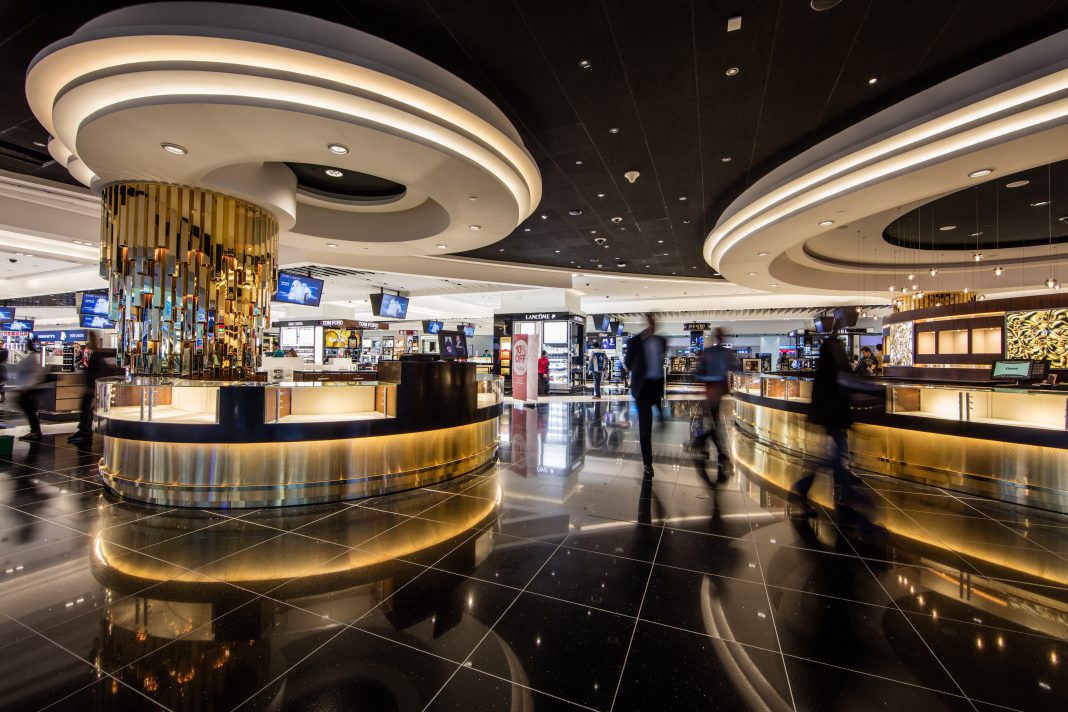Dubai Duty Free forecasts annual sales will increase 40 per cent to Dh5.1 billion ($1.4bn) in 2022 and it plans to recall more of its staff laid off during the Covid-19 pandemic as passenger traffic through the world’s busiest international airport begins to rebound, according to a report in The National.
An influx of high-spending Russian, Saudi Arabian and Israeli travelers will help boost sales this year, with overall average spending per passenger to exceed pre-pandemic levels, Colm McLoughlin, executive vice chairman and chief executive of Dubai Duty Free, told The National.
“For this year, we’ve budgeted for sales of Dh5.1bn and we’re confident about it and we expect to achieve it,” McLoughlin said in an interview at the company’s headquarters.
“What has come back very noticeably from 10 years ago is Russian traffic and what has increased considerably last year is Saudi traffic and of course we have the new Israeli traffic.”
The projected rise in annual airport retail sales comes as passenger traffic through Dubai International Airport started a gradual recovery in 2021 from the effects of the pandemic that hammered global demand for air travel and as the hub resumed operations at full capacity.
The emirate’s airport operator raised its forecast for annual passenger traffic from 2021 by two million, anticipating that traveller numbers will reach 28.7 million. Dubai Airports is projecting 57 million annual passengers for 2022.
After the reopening of the final phase of Concourse A at Terminal 3 last November, Dubai International Airport is operating at full capacity following 20 months of reduced operations because of the pandemic. Dubai World Central, the emirate’s second airport, will reopen its passenger terminal in May.
The airport retailer’s forecast of Dh5.1bn in annual sales this year is inching towards its record revenue of Dh7.4bn in 2019.
An emerging trend during the pandemic has been an increase in sales per head to $53 in 2021, from about $40 per sale in 2019. The number currently stands at $50.
“We think the increase per sale is because people haven’t travelled as frequently as they did before, they’re saving their spending spree for their travel event,” McLoughlin said. “Accordingly, because they hadn’t travelled so much, they had saved a bit more money than they would otherwise have.”
Penetration rate, a performance metric in the duty free business that measures the number of passengers the airport retailer sells to, had reached 30 per cent.
With the uptick in business and the airport returning to its full capacity, Dubai Duty Free in the last couple of months recalled 1,500 of its staff who had been laid off during the pandemic, bringing its total workforce to 4,000 employees currently, said McLoughlin.
“We’re still going to call back some more,” he said. “We will be calling back initially a couple of hundred more people and then as the business goes on, hopefully we will continue doing that.”
The company, like others in the global aviation industry, was forced to lay off staff during the pandemic, cutting its workforce by more than half from 6,000 people in 2019 down to 2,500 workers a year ago.
“We had them on furlough for a long time, then we had to lay people off, some people retired, and we paid everybody their entitlement and their indemnity,” he said. “But these are the people we are calling back.”
In terms of financing, the airport retailer does not have any requirements to raise funds this year and is not seeking any government assistance.
“We’re self-sufficient in finance, so we will not be looking for bank loans or anything like that,” the veteran executive said. “We have reserve funds that we have carefully placed… so we will not be looking for any borrowing.”
McLoughlin said the Omicron variant was less severe than previous variants and that the aviation industry will rebound gradually.
Returning to pre-pandemic levels of passenger traffic is likely to take another two years, he said, echoing similar forecasts by the International Air Transportation Association and industry analysts.
In the meantime, Dubai Duty Free has adapted its strategy to changing consumer behaviours and preferences during the pandemic with offerings such as home delivery service and online orders.
The company also took measures to control costs and preserve cash during the pandemic including staff lay-offs, avoiding overtime hours, reducing the value of stock in its warehouse by half to manage payments and avoiding extra promotional payments for events. Like other retailers, it also grappled with a shortage of supplies of certain products as the pandemic forced manufacturers to shutter factories and halt production.
But with Dubai forecasting a brighter outlook for travel and tourism this year, Dubai Duty Free is optimistic about attracting more buyers.
“We are in the right direction,” McLoughlin concluded. “Our performance in 2021 and our aspiration budget-wise for 2022 indicates and confirms that we’re on the right track.”


